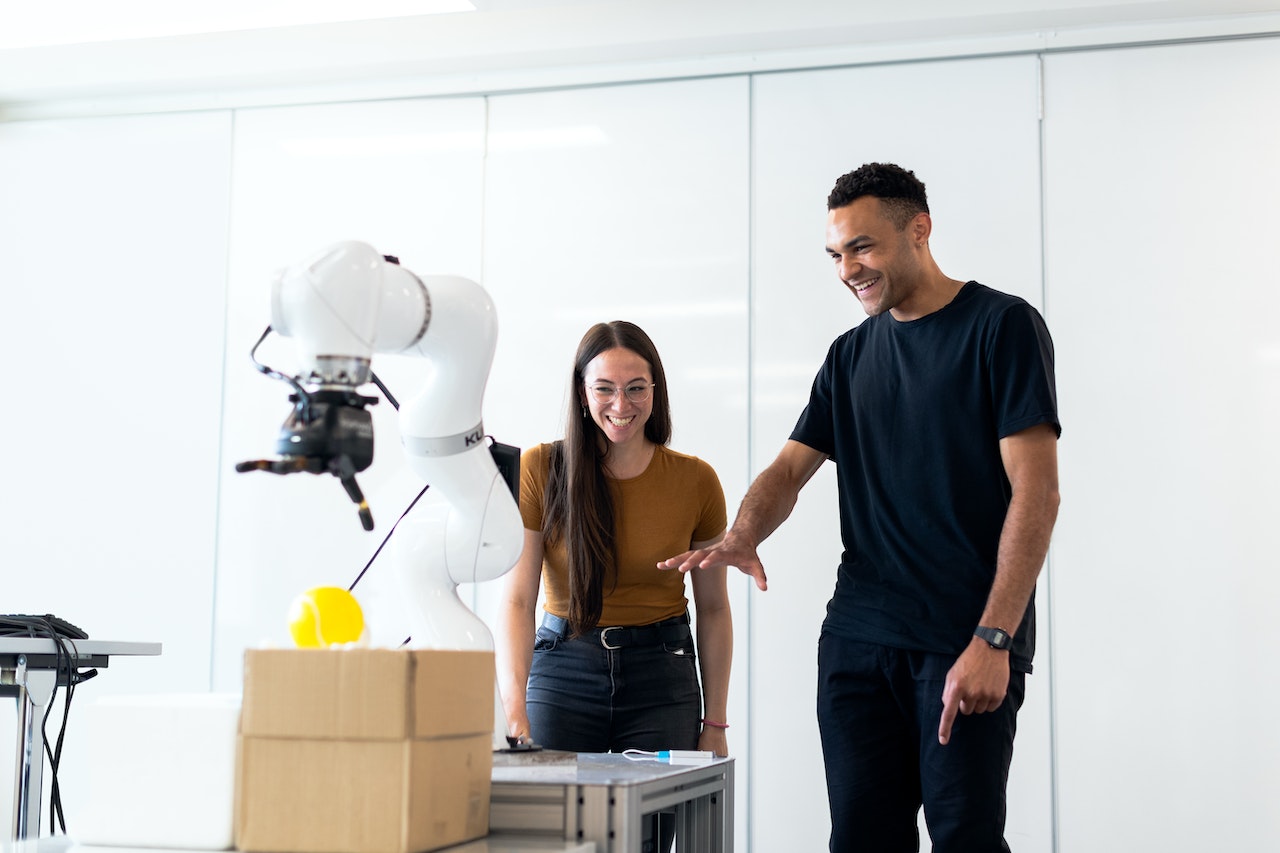How artificial intelligence is changing the healthcare industry
Published

Artificial intelligence (AI) is increasingly making its mark on the world. The development of AI systems is advancing and the technology is being used in many different industries, including healthcare.
AI in healthcare is constantly changing the way patients are cared for through data analysis, collection and distribution, while supporting healthcare professionals.
According to Fortune Business Insights, the AI market is worth $27.73 billion and is expected to reach $266.92 billion by 2027. With all this growth, some are wondering whether we are really taking full advantage of artificial intelligence in healthcare.
Read on to learn how artificial intelligence is revolutionizing the healthcare industry.
What is AI?
Artificial intelligence is not science fiction, nor is it far in the future. Furthermore, it doesn’t stop at self-driving cars. Artificial intelligence is defined as the simulation of human intelligence processes by machines, especially computer systems.
AI focuses on deep learning, logical thinking and self-correction. AI is used in many industries, including transportation, government, education, and even online shopping.
Strong AI is essentially the ability to perform human-like tasks without human intervention, such as: B. Finding solutions to problems. Narrow AI or weak AI, on the other hand, is used for specific or specific tasks. You may not know it, but your iPhone friend Siri is an example of a narrow AI system.
So how is AI used in the healthcare industry? Below we want to examine some examples.
AI-assisted surgery
Away with the surgeons, the robots are here. That's right, robot-assisted surgery is not a thing of the future. Computer science defines AI research as the study of intelligent agents or a device that perceives the environment and then takes actions to maximize success in achieving its goal.
Using AI research, robots can analyze medical records and then guide a surgeon's arm during minimally invasive procedures. These robots can inform medical professionals about new techniques using data studies.
They can be used in the eye and even in cardiac surgery as they improve control over critical aspects of the procedure. Minimally invasive surgery means that the incisions are much smaller and are performed using miniature instruments.
Some examples of AI-assisted surgery are the da Vinci technique and the Heartlander robot. The da Vinci, with its surgical arms to which instruments are attached, is considered the most advanced surgical robot in the world.
MORE: The best data science events to learn and get support
The da Vinci is capable of providing a 3D view of the surgical area. The surgeon sits at a computer console near the operating table and controls the machine's arms. Da Vinci allows the surgeon to work in confined spaces and reduces the opportunities for error.
The Heartlander is a tiny mobile robot that can enter the chest through the sternum. The Heartlander dramatically reduces the damage caused by accessing the heart using traditional methods. Localized sensing, mapping and treatment can be performed across the heart's surface using a tiny robotic instrument instead of many other instruments.
Clinical judgment and diagnosis
The goal of public health is to diagnose patients quickly and efficiently. Several studies have shown that artificial intelligence systems can diagnose patients earlier and more efficiently than humans. Artificial neural networks are used to examine large amounts of data and experts then make decisions based on this data, such as: B. about the right treatment plan.
Strong AI is a form of machine learning capable of reason and judgment. In healthcare, this means using AI to diagnose patients. Even though science isn't quite there yet, it is making significant progress. AI can process large amounts of data, much more than humans can. AI systems can process this data to determine the symptoms and causes of diseases.
For example, a study at Stanford used an AI algorithm to detect skin cancer. The AI system was on par with humans when it came to diagnosis. Another study found that AI algorithms can listen to emergency calls to detect cardiac arrest more successfully than humans.
Administrative tasks
Artificial intelligence could save the healthcare industry billions of dollars by helping with administrative tasks and streamlining workflows. According to the American Hospital Association, hospitals spend an estimated $39 billion each year on health care compliance. Checklists created using artificial intelligence automate patient privacy policies and remind hospital staff to wash their hands, among other things.
AI can also help with healthcare billing. AI can examine, allocate and sometimes negotiate the cost of insurance coverage. 1Desk's programs, for example, facilitate the workflow between insurance companies, patients and hospitals.
Another example of the use of AI in administration is speech transcription into text. This application enables systems to order tests, write medical records and prescribe medications.
Virtual assistance
Another way AI can save billions of dollars in healthcare is through virtual nursing assistants. Virtual nursing assistants can provide patients with information 24/7. You can answer questions that patients have between doctor's visits, saving them unnecessary hospital visits. Some virtual nurses may even offer wellness checks.
Image analysis
One of the most time-consuming tasks for healthcare providers is image analysis, or extracting data from digital images. AI can shorten this time by analyzing images faster than humans. A study at MIT proved this after researchers developed a machine learning algorithm that can scan 3D images 1,000 times faster than a human.
Additionally, AI applications in image analysis will have a real impact through telemedicine. Those who do not have easy access to medical care can take a photo of their injury or medical emergency in order to receive care.
How can I get into the field of AI?
If you are interested in artificial intelligence and the healthcare industry, a degree in artificial intelligence could be right for you. Carnegie Mellon University is offering a bachelor's degree in artificial intelligence for the first time for the 2018-2019 academic year.
Many other top universities offer an AI degree program as part of their computer science programs. Caltech, for example, offers a degree program in machine learning and artificial intelligence.
You can assume that the basic courses for an AI degree or an AI focus include many computer science and mathematics courses. Additionally, there are AI-specific courses covering machine learning, decision-making and robotics, ethics and AI, and human-AI interaction.
If you want to further your education, a master's degree in computer science or artificial intelligence could be the right path for you. Those with a master's degree in health informatics strive to find the connection between patient care and technology.
If you already work in information technology and want to enter the healthcare field or simply advance your career, a master's degree in healthcare informatics could come in handy.
In a master's degree in artificial intelligence, you will learn how to use advanced mathematics, computer science, and engineering to develop systems and machines capable of solving problems that would normally require natural intelligence. Possible careers for graduates of this course include AI specialist, robotics engineer or machine learning engineer.
Artificial intelligence is currently an in-demand area as there are not enough qualified professionals in the industry to meet current demand. This means a huge job market for those seeking a career in this ever-changing field.
Additionally, the average annual salary is over $140,000. AI jobs are not explicitly listed on the U.S. Labor Statistics website, but the number of jobs in computer science is predicted to increase by 15% by 2029.
Conclusion: AI is evolving in healthcare
Artificial intelligence will continue to grow worldwide, especially in healthcare. We have already seen impressive achievements enabled by AI in healthcare, and we can expect more to come.
Additionally, artificial intelligence is predicted to save the healthcare industry billions of dollars every year. Through faster diagnoses, more efficient billing and administrative processes, and surgical support, artificial intelligence ensures a seamless and error-free patient experience.
Despite all the progress, there are also fears about the use of robots in our healthcare system. Many patients prefer human interaction and feel safer knowing there will be no machine errors. Additionally, data protection is still an issue when artificial intelligence is involved.
Despite the concerns surrounding AI in healthcare, the positives perhaps outweigh the negatives. In an industry where time is of the essence and lives are at stake, AI is a powerful tool that has the potential to save lives around the world every day.







